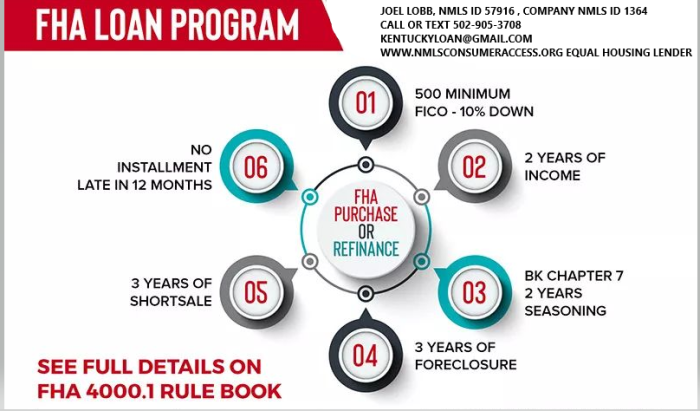Things to know about getting a VA Mortgage Loan in Kentucky in 2025
Are you a veteran, active-duty service member, or surviving spouse looking to purchase a home in Kentucky?
Here’s everything you need to know about qualifying for a Kentucky VA mortgage loan in 2025:
1. No Loan Limits on VA Mortgages in Kentucky
For high-cost areas in Kentucky, the loan amount may vary based on county-specific limits. Be sure to check with your lender or the VA's official website for updated limits in 2025.
2. VA Loans Are for Primary Residences Only
A Kentucky VA mortgage loan must be used to purchase or refinance your primary residence. Vacation homes, second homes, and investment properties are not eligible. However, VA eligible properties include:Single-family homes
Multi-family homes (up to four units)
Condominiums approved by the VA
Manufactured or mobile homes on a permanent foundation that have only been moved once (from the factory or dealership to the land).
3. Surviving Spouses May Qualify
VA loans aren’t just for veterans and active-duty service members. Certain Kentucky VA surviving spouses may also be eligible. Here are some situations where eligibility applies:The veteran was killed in action or died from a service-connected disability.
The spouse has not remarried (or remarried on or after age 57 and after December 16, 2003).
The spouse of a veteran who is missing in action or a prisoner of war.
The spouse of a totally disabled veteran whose death was not related to their disability.
4. Certificate of Eligibility (COE) Is Required
To qualify for a Kentucky VA mortgage loan, borrowers must obtain a Certificate of Eligibility (COE) from the VA. This document proves you meet the eligibility criteria for a VA loan. Here’s what you’ll need to get your COE:Veterans: DD Form 214 (showing character of service and reason for separation).
Active-duty service members: A statement of service signed by your commander or personnel officer.
Surviving spouses: VA Form 26-1817 and the veteran’s DD Form 214, if available.
You can apply for your COE online, via mail, or through your lender.
5. Credit Score Requirements
To increase your chances of approval, it’s best to improve your credit score to 580 or higher. This will make the underwriting process smoother, especially if the automated underwriting system (AUS) is used.
6. VA Loans After Bankruptcy or Foreclosure
VA loans provide flexibility for borrowers who have faced financial difficulties. Here’s how you can qualify after a bankruptcy or foreclosure:Chapter 7 Bankruptcy: Eligible 2 years after discharge.
Chapter 13 Bankruptcy: Eligible 1 year after filing, with on-time payments.
Foreclosure: Eligible 2 years after the foreclosure is finalized.
Short Sale: Treated like a foreclosures and 2 years needed Some lenders may not require a waiting period.
7. Residual Income Requirement
VA loans are unique because they require borrowers to meet residual income requirements, ensuring you have enough money left over each month after paying your bills. This includes:Mortgage payment (including taxes and insurance)
Credit card and loan payments
Utilities and other fixed expenses
Federal, state, and local taxes
The amount of residual income required depends on your family size and location. For example, in Kentucky (Southern region), a family of five needs to have $1,039 in residual income to qualify for a VA loan.
8. Key Benefits of Kentucky VA Loans
No Private Mortgage Insurance (PMI): This can save you hundreds of dollars each month.
Competitive Interest Rates: VA loans typically have lower rates than conventional loans.
Flexible Credit Guidelines: More lenient than conventional and FHA loans.
No Loan Limits: Borrow as much as your lender approves based on your financial profile.
9. How to Apply for a Kentucky VA Mortgage Loan in 2025
Follow these steps to apply for your VA loan:Check Your Eligibility: Obtain your COE through the VA or your lender.
Improve Your Credit: Aim for a credit score of 580 or higher. '
Find a VA-Approved Lender: Work with an experienced lender familiar with VA loans in Kentucky.
Get Pre-Approved: Provide your lender with income, asset, and debt information to secure pre-approval.
Choose Your Home: Select a property that meets VA guidelines (primary residence, approved property type, permanent foundation, etc.).
Close on Your Loan: Finalize your loan with your lender and move into your new home!
As a veteran myself (19K Tanker) and a mortgage professional, I’ve helped over 100 veterans secure VA loans in Kentucky. Whether you’re buying your first home, upgrading, or refinancing, I’m here to make the process seamless.
Have questions about qualifying for a Kentucky VA mortgage loan in 2025? Call, text, or email me today!



 Email -
Email - Call/Text -
Call/Text -  Website:
Website:  Address: 911 Barret Ave., Louisville, KY 40204
Address: 911 Barret Ave., Louisville, KY 40204.png)

.jpg)




